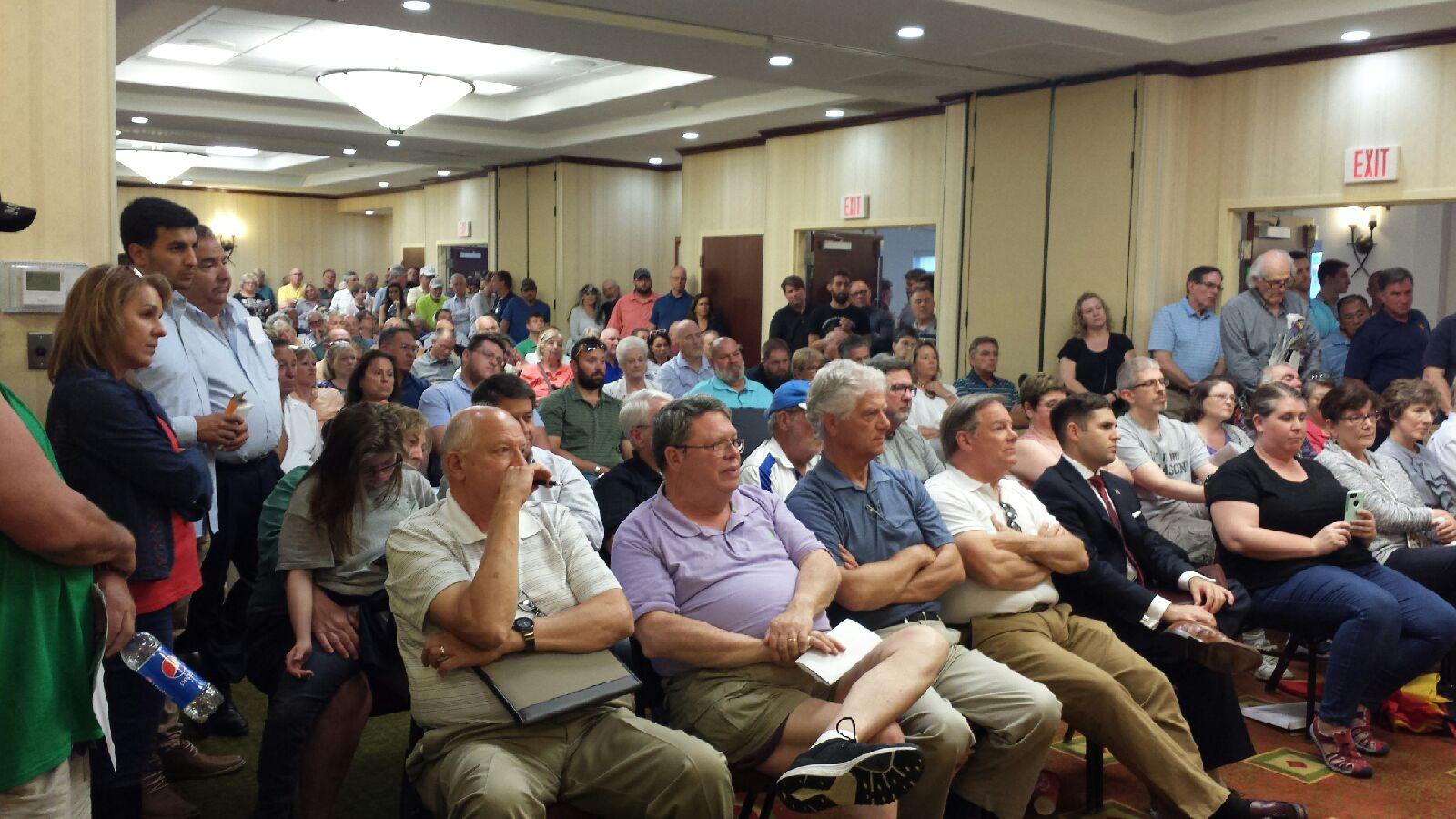MORGANTOWN — The city of Morgantown is asking state representatives to be on the lookout for legislation aimed at eliminating annexation by minor boundary adjustment in the upcoming legislative session.
According to an organizer of F.A.I.R., which stands for Forced Annexation Isn’t Right, they’ll likely find it.
City leadership, as well as Morgantown City Council, recently sat with Delegates Evan Hansen, Danielle Walker and Rodney Pyles and Senator Bob Beach, all Democrats, to talk about the city’s legislative priorities.
The city’s, currently paused, plan to expand its territory by 3.8 square miles, taking in 12,380 additional residents, 367 businesses and 43 miles of roads by minor boundary adjustment was on the agenda.
“We have embarked on a very ambitious proposal to annex close to four square miles. We began that process but have placed that currently on pause as there are groups who are studying this,” City Manager Paul Brake said. “What concerns us is that there could be proposed legislation that would be counterproductive and forever impact out ability to grow.”
West Virginia law allows three avenues for municipal expansion:
By vote (8-6-1) — If a petition representing at least 5% of the city’s population is presented, the matter goes before the voters in a city-wide election.
By petition (8-6-4) — If the majority of registered voters who own property or operate a business in the area in question present a petition to be annexed, it would go before city council and the county commission for approval.
By minor boundary adjustment (8-6-5) — If a city desires to expand its boundaries it can make its case to the county commission, which then must consider a number of criteria before voting to approve or deny.
As the group’s name would suggest, F.A.I.R., opposes the city’s ability bring in residents and businesses involuntarily.
Formed after the city’s annexation plans went public, F.A.I.R. mounted a campaign that drew hundreds to a public meeting and resulted in the anti-annexation signs and billboards standing across the city and beyond.
Ultimately, the city blinked, putting the annexation push in a holding pattern while stakeholder groups like the Morgantown Area Partnership study the plan and its potential impacts.
Former Morgantown Mayor Jim Manilla is among F.A.I.R.’s organizers.
He said the group is working on legislation, noting West Virginia is one of only four states that still allow minor boundary adjustment.
“Most states have looked at this and ended up doing away with minor boundary adjustment in some way. West Virginia is one of the few that hasn’t. So we’re looking some other states to see how they wrote up their laws and we’ll proceed from there,” Manilla said, adding that they, too, intend to speak with legislators.
“We’re going to reach out to our delegates and our two senators. That’s our plan. We want to talk with them and see where they stand on these issues. We’re not going to let them off the hook. We want to discuss it with them,” he said.
Brake told the lawmakers that if such a bill is brought forward, he hopes there will be significant consideration given to how municipalities can grow and generate revenue.
He mentioned designated urban growth areas and intergovernmental agreements between cities and counties as an option and noted that a number of states provide financial aid directly to their cities.
City Attorney Ryan Simonton explained further.
“The important thing Paul mentioned is to look at it as a global issue of both boundaries and funding. It seems common that states with more limited options for local setting of those boundaries also provide more funding at the state level, so the territory under management isn’t as much of a local concern,” Simonton said.
Mayor Bill Kawecki said you need only look at all the development that occurs just beyond the city’s boundaries to see there isn’t a level playing field for municipalities.
“I don’t fault any developer or any business person, but as long as there is the ability to do things cheaper, close by, and maintain that market, they’re going to do it. They’ll step right over the line and build while we atrophy,” he said.
Councilor Jenny Selin agreed.
“It’s ridiculous to have the growth be in a ring around an area,” she said. “They use that area as their address. They use that area in their business concept. They’re completely a part of that community, except for taxation.”
Morgantown Director of Development Services Chris Fletcher said he’s aware annexation could be a sticky topic for lawmakers representing people on both sides of the issue.
He explained that cities like Morgantown provide excellent services, but that effort is becoming more and more difficult as sprawl along municipal boundaries drains vitality from the state’s cities.
“This is a statewide issue and if that tool is taken away, there’s not much left for municipalities,” Fletcher said. “It’s true across this state. In every corner of the state, where there is economic activity; where there is positive growth; where there are people living high-quality lives is in and around municipalities. That’s a fact.”
According to Morgantown Communications Manager Andrew Stacy, the city doesn’t have a timeline for when it plans to bring annexation back to the public.




